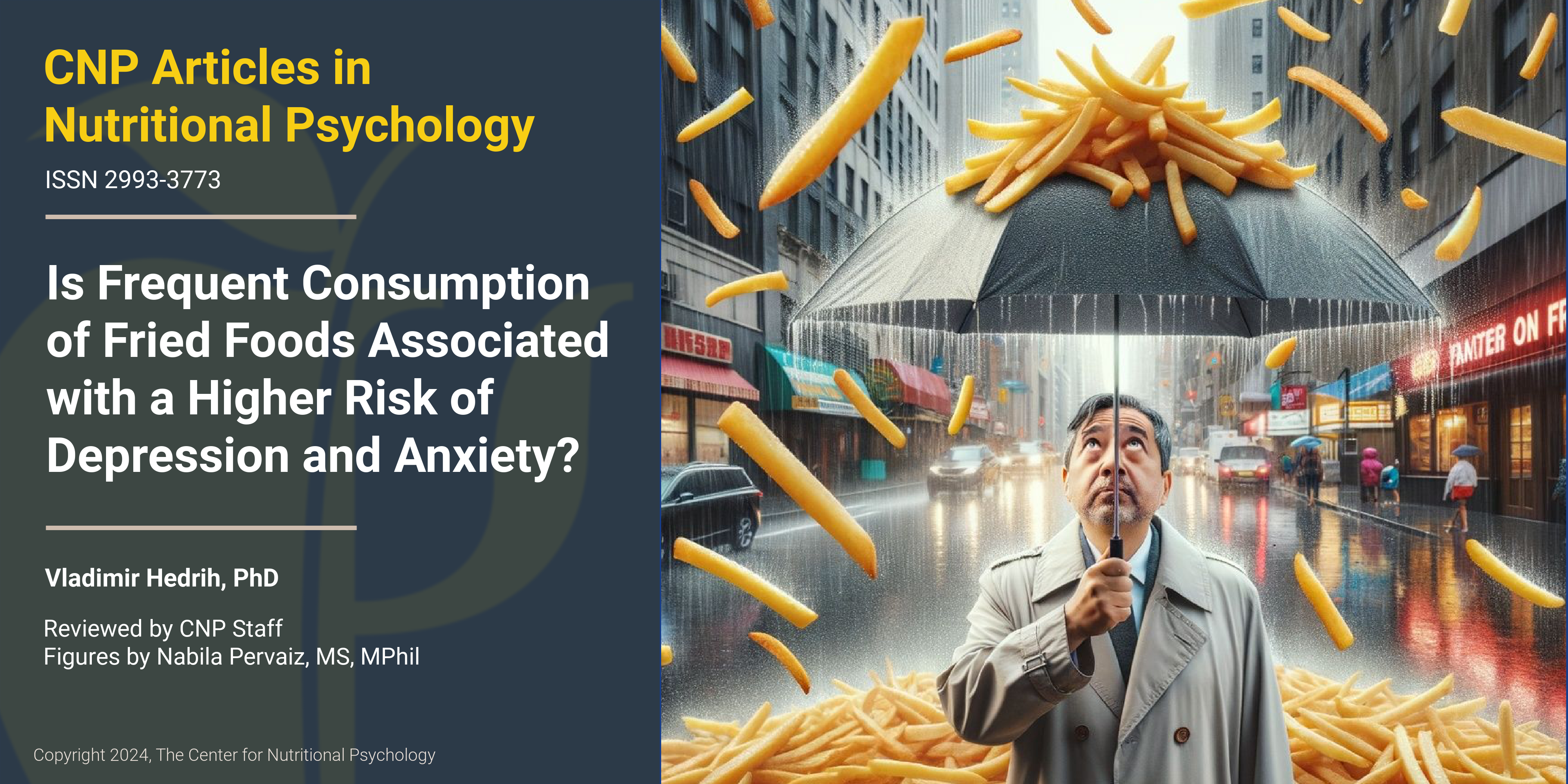Frequent Consumption of Fried Foods is Associated With a Slightly Higher Risk of Depression and Anxiety
The consolidation of research in the diet-mental health relationship within nutritional psychology has shown that our food choices and patterns can influence our moods and state of mind, and our moods and state of mind can influence our food choices and patterns. People tend to eat when stressed or bored (Dicker-Oren et al., 2022; Stevenson et al., 2023). They can also feel angry when hungry (called hanger), in which one experiences anger due to hunger (Hedrih, 2023a).
Listen to this Article
Consuming Fat and Sugar (At The Same Time) Promotes Overeating, Study Finds
When we want to find out what a piece of food is like, we can taste or smell it. When we smell something, sensory cells located in a small patch of tissue (olfactory epithelium) at the top of our nasal cavity react to the odorant molecules coming from that piece of food, and the olfactory nerve to carries the information to our brain, allowing us to experience smell. Similarly, when we taste a piece of food, taste buds in our mouth react to it, and specific nerves carry the information to our brain. While we eat, this evaluation of the qualities of food using our sensory organs happens continuously. However, not all of our food sensations come from our external senses. Our body also has sensory cells in the gut that inform the brain about what we eat.
Listen to this Article
Does Sleep Deprivation Increase Desire for High-Calorie foods?
Our minds don’t function as well when we continually get less sleep than we need. After a prolonged period of time with less sleep, concentrating becomes progressively more difficult, our reactions become slower, and our minds can often wander off. We may even fall asleep unintentionally. Our mind starts “drifting. “ Sometimes, consuming substances like coffee, similar caffeinated beverages, or even medications like modafinil (Wingelaar-Jagt et al., 2023) can help us remain vigilant for some additional time. However, we must eventually have a sufficiently long sleep period to recuperate and remain healthy.
Listen to this Article
Study Identifies Link Between Post-Traumatic Stress Disorder and Gut Microbiome Composition in a Cohort of Women
When we are exposed to distressing events or conditions that overwhelm our ability to cope, our body can produce a severe emotional response, and we experience psychological trauma. We feel that we have lost control of events around us. Our ability to integrate these emotional experiences into the story of our lives is reduced. After experiencing psychological trauma, people often start dividing the subjective timeline of their lives into the time before and the time after the traumatic event. Long-lasting psychological and health consequences may often follow (Hamburger et al., 2021). Among other things, the experience of psychological trauma can lead to the development of a serious mental health disorder called post-traumatic stress disorder or PTSD.
Listen to this Article
Can Symptoms of Alzheimer’s be Transferred to Rats via the Gut Microbiota of Alzheimer’s Patients?
Our gut is home to trillions of different microorganisms. These microorganisms sustain themselves using the food we eat and help our digestion process. For example, many food items contain substances called resistant starches. Our digestive system cannot digest these resistant starches, but some bacteria in our gut can. They ferment those types of starches, creating substances called short-chain fatty acids (SCFA) that our bodies can use.












